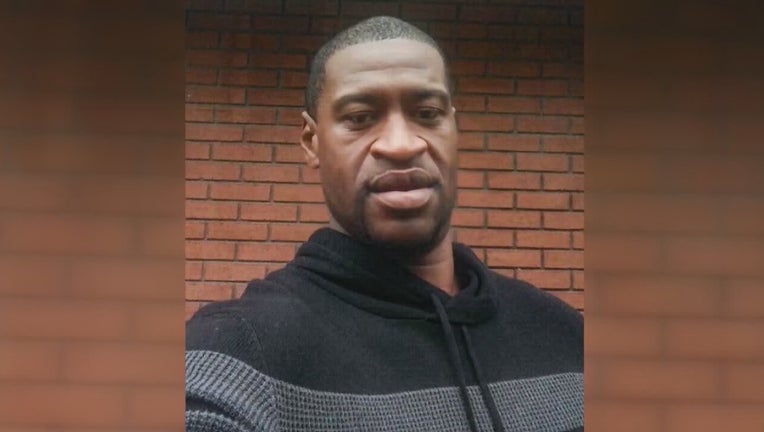Texas board withdraws pardon recommendation for George Floyd

George Floyd died after being arrested by Minneapolis police on Memorial Day in 2020.
AUSTIN, Texas - A Texas board that unanimously supported a posthumous pardon for George Floyd over a 2004 drug arrest in Houston has withdrawn that recommendation over "procedural errors" after sending it to Republican Gov. Greg Abbott’s desk, his office said Thursday.
The unusual reversal announced by Abbott’s office two days before Christmas — around the time he typically doles out pardons — drew outrage from a public defender who had submitted the pardon application for Floyd, who spent much of his life in Houston before his death in 2020 in the custody of a white Minneapolis police officer.
RELATED: George Floyd's 2004 arrest by disgraced ex HPD cop should be pardoned, board says
Floyd’s name was withdrawn along with two dozen other clemency recommendations that had been submitted by the Texas Board of Pardon and Paroles. In a letter dated Dec. 16, the board told Abbott that it had identified "unexplained departures" from its process of issuing pardons and needed to reconsider some recommendations, including the one for Floyd.
"As a result of the Board’s withdrawal of the recommendation concerning George Floyd, Governor Abbott did not have the opportunity to consider it," Abbott spokeswoman Renae Eze said in a statement.
Allison Mathis, a Houston public defender who submitted the pardon application on behalf of Floyd, called the last-minute reversal a "ridiculous farce."
"It really strains credibility for them to say now that it’s out of compliance, after the board has already voted on it," she said.
RELATED: Pardon request submitted for George Floyd in 2004 Texas case
Floyd grew up and was laid to rest in Houston. In June, former Minneapolis police Officer Derek Chauvin was sentenced to 22 1/2 years in prison for Floyd’s murder.
RELATED: Derek Chauvin pleads guilty to violating George Floyd's civil rights
Pardons restore the rights of the convicted and forgive them in the eyes of the law. But in Floyd’s case, his family and supporters said a posthumous pardon in Texas would show a commitment to accountability.
In February 2004, Floyd was arrested in Houston for selling $10 worth of crack in a police sting, and later pleaded guilty to a drug charge and served 10 months in prison. But the global spotlight on the death of Floyd in police custody 16 years later is not why prosecutors revisited his Houston case. Instead, it was prompted by a deadly Houston drug raid in 2019 that involved the same officer who arrested Floyd.
RELATED: Man's drug convictions dismissed in 2008 case involving ex-HPD officer Goines
Prosecutors say that officer, Gerald Goines, lied to obtain the search warrant for the raid that killed a husband and wife. Goines, who is no longer on the Houston force and faces murder charges, has denied wrongdoing. More than 160 drug convictions tied to him over the years have since been dismissed by prosecutors due to concerns about his casework.
Texas’ parole board — whose members were all appointed by Abbott — unanimously recommended the pardon for Floyd, and the district attorney in Houston also urged the governor to act.
RELATED: Harris Co. DA submits letter agreeing with pardon request for George Floyd
Abbott, who is up for reelection in 2022 and faces primary challengers from the far right, had for months given no indication whether he would grant the pardon in the months since the parole board put the recommendation on his desk. The prolonged silence raised questions by Mathis and others over whether political calculations were at play in Abbott’s decision. His office did not respond to those charges.
Abbott attended Floyd’s memorial service last year in Houston, where he met with the family and floated the idea of a "George Floyd Act" that would take aim at police brutality. But when the Texas Legislature convened months later, Abbott was silent over policing reforms pushed by Democrats and made police funding a priority.

